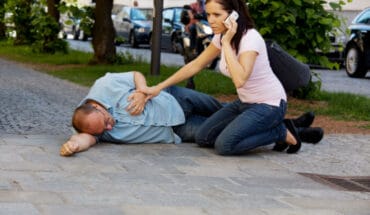Fireworks are exciting and eagerly anticipated by many people, yet for the majority of pets it can be a stressful and dangerous time. Pets have no idea that it is Bonfire night, New Year or some other celebration. All they know is that the world around them has suddenly become frightening and unpredictable. This year many supermarkets have voluntarily withdrawn sale of fireworks for private use, in a bid to curb some of the antisocial behaviour that often occurs at this time. Fireworks also prove stressful for many people and it is always far safer for people to attend public displays.
The animal charity Blue Cross reports a significant increase in pets requiring calming medication around Bonfire night. They also report an increase in pets involved in road traffic accidents at this time, scared by loud bangs and running into the road.
Meanwhile a recent survey by the RSPCA revealed almost half our dogs (45%) display signs of fear at the sound of fireworks. Similarly, cats and other animals find this time of year extremely distressing.
Fireworks are allowed to be 120 decibels – the equivalent to a jet aircraft taking off. The RSPCA are campaigning for this to be reduced to 97 decibels, other than at a public display.
Fortunately, there is now a new trend for quiet or noiseless pet-friendly fireworks which are now more easily available. This makes sense as animals have very acute hearing. Loud bangs and whistles frequently cause them actual pain in their ears. The loud noise is also extremely distressing for the majority of animals.
Keeping your pet safe and happy during this potentially stressful season is vitally important. Ignoring their fear will increase their stress and could result in aggressive or defensive behaviour or even in a pet running away. The Blue Cross report an influx of pets bought into their re-homing centres this time of year, having run away from home.
With this in mind, ensure dogs are wearing some form of easily readable identification (ID) even in the house. They should have at least a collar and tag.
It is a good idea to fit your pets with a microchip, so that if they do run away they have a better chance of being quickly reunited with you.
Spot the signs your pet could be stressed
If your dog or cat starts to change their behaviour, this could be a clear indication that they are stressed.
For dogs – growling, barking, flattened ears, tucking their tail between their legs, cowering, lip licking and raised hair on the back of their necks are signs that they are unhappy.
The following are signs of severe stress:
Destructiveness, aggression, licking and chewing, diarrhoea and a change in eating habits – you should talk to your vet to rule out any other underlying cause and get their advice.
Following these simple steps can help you minimise the trauma experienced by your pet.
Don’t do any of the following as it will increase their stress:
Don’t take any pets to a fireworks display.
Don’t leave your pet alone if you feel they will be upset by the noise of fireworks.
Don’t be angry with your dog or cat if you find they have been destructive or soiled your house. Shouting at a frightened pet will only make them more stressed.
Don’t tie your dog up outside whilst fireworks are being let off, for example, outside a shop while you pop inside.
Don’t leave any pets alone in the garden or in your car.
Tips to ease their stress and provide comfort:
Create a den so that there is a place all your pets can feel safe. Cover the den with blankets and fill it with blankets and cushions as noise-absorbers. In the weeks before fireworks night, get your pet used to their new den and give them praise and treats for going in it.
Walk your dog during the day and keep dogs and cats indoors in the evening.
Feed your pet before fireworks start, as if they become unsettled they may be reluctant to eat. A carbohydrate rich meal an hour or so before the fireworks are due to begin can make them feel sleepy.
Keep doors and windows shut and close dog and cat flaps.
Draw the curtains to minimise noises and flashes of light.
Play soothing sounds or have the TV or radio on as white noise to distract your pet.
Try to behave as normally as possible, dogs, will pick up on your anxiety and changes in routine
Be sensitive to your pet’s needs. Comfort your pet if it helps them to relax, or leave them alone if they withdraw. Ensure they are safe and are not likely to hurt themselves.
A new toy, chew or blanket can prove a welcome distraction and comforter.
Specific advice for cats
Make sure there is somewhere your pet can hide if they want to. This could be behind furniture or in a cupboard.
Cats often feel safest high up such as on top of a wardrobe. Don’t pick up cats or restrain them when they are scared. They generally prefer to be in control themselves when they feel threatened and could bite or scratch you if they are scared.
You might want to consider using a cat litter tray indoors, even if you don’t usually.
Cats have better hearing than we do, so they might be able to hear fireworks going on even when we think they are finished. So wait for your cat to come out of its safe place when they are ready. Don’t try and coax them out, as this will make them more scared.
Consider leaving a shed door open to give sanctuary to other cats who may be scared by the fireworks.
Help for outdoor Pets:
Rabbits, guinea pigs, hamsters, gerbils, mice, ferrets and birds all need to be treated with special care during firework season. These animals are easily frightened.
If your pet lives outside, such rabbits or Guinea pigs, either bring the cage inside into a quiet room, a shed or garage, or partly cover the cage with blankets to muffle loud noises. If you can’t move the cage indoors, try and turn it towards the fence to minimise flashes of light.
Ensure the animals can still see out.
Add extra bedding to the cage so the animals have something to burrow into
Longer Term Actions
If you have a particularly anxious animal, you can take actions over the longer term to prepare them for fireworks including behavioural therapy and pheromone diffusers.
Sound Therapy 4 Pets is a free therapy pack created by the Dogs Trust and vets to teach your dog to become scared of loud noises such as firework and thunder.
Our practical and online dog first aid courses will help you be there for your pet when they need you. We cover more information on spotting signs that something could be seriously wrong and offer clear first aid advice for most common accidents and emergencies, to help you keep your dog safe and well.
We are also delighted to have contributed to the work of the RSPCA and Galactic Fireworks on this topic.
- Sudden cardiac arrest in the young and the simple screening to avoid them - 1st July 2024
- Water safety: First aid for drowning - 1st July 2024
- Water safety this summer – a guide for children and parents - 1st July 2024






